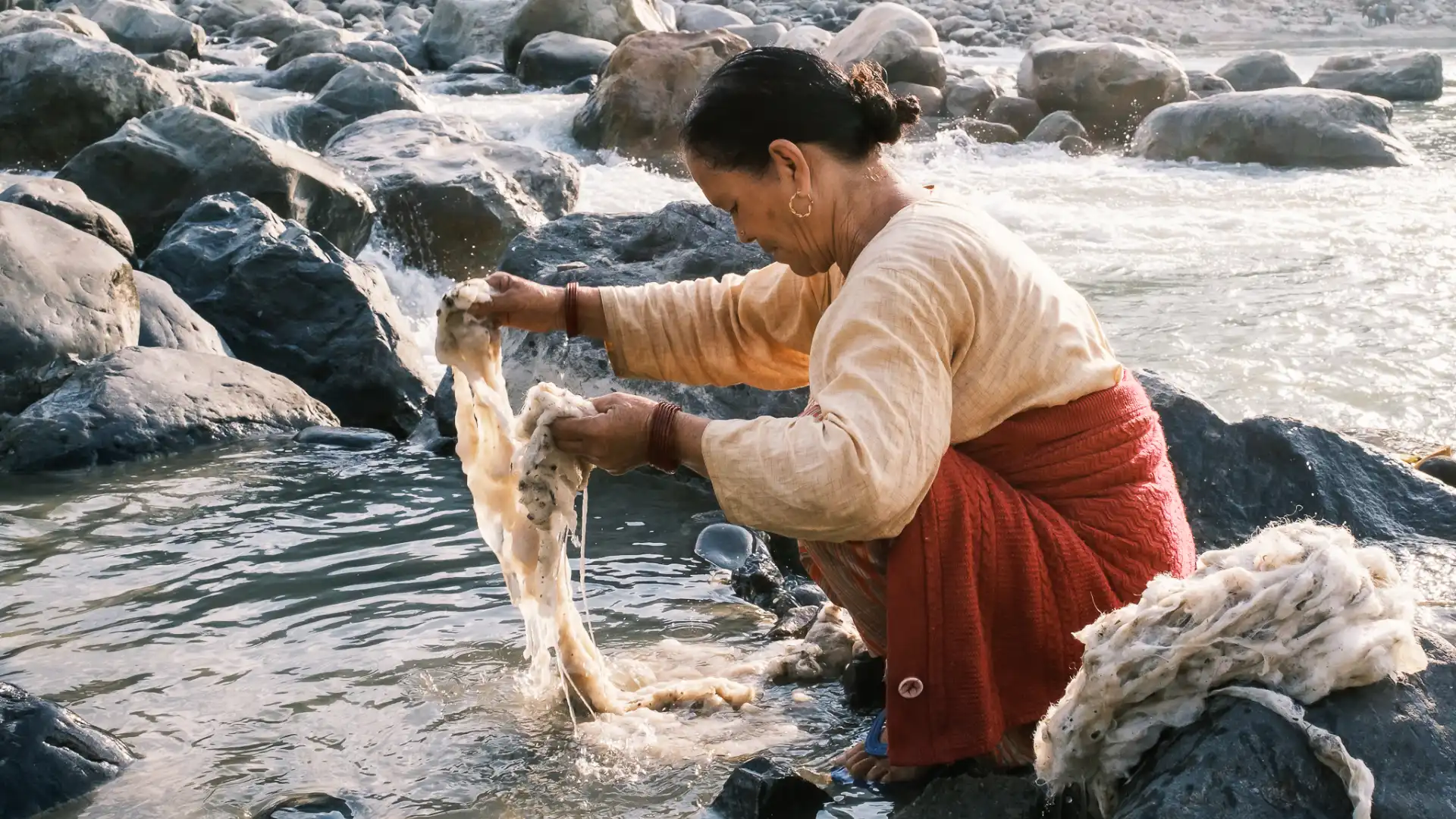

Based in the Himalayas, We Make Handwoven Shawls, Stoles, and Scarves.
We use only Natural Fibres such as pure wool, pashmina, and yak wool. Our woollen shawls, stoles and scarves are very soft and warm and are perfect for cold winters. Our pashminas and yak shawls are handwoven with material from Ladakh and Kinnaur. Everything is colored with Natural Dyes.
10% discount on purchase of Rs.40,000 or more.
10% discount on your first purchase. Use code 10%DISCOUNT
on check-out.
We produce hand-made shawls, stoles and scarves of pure sheep and yak wools and pashmina. All our products are hand-woven using traditional looms and coloured with natural dyes in the Himalayas. Shipping within India is Free.
Get 10% discount on your first purchase. Use code 10%DISCOUNT at check-out.
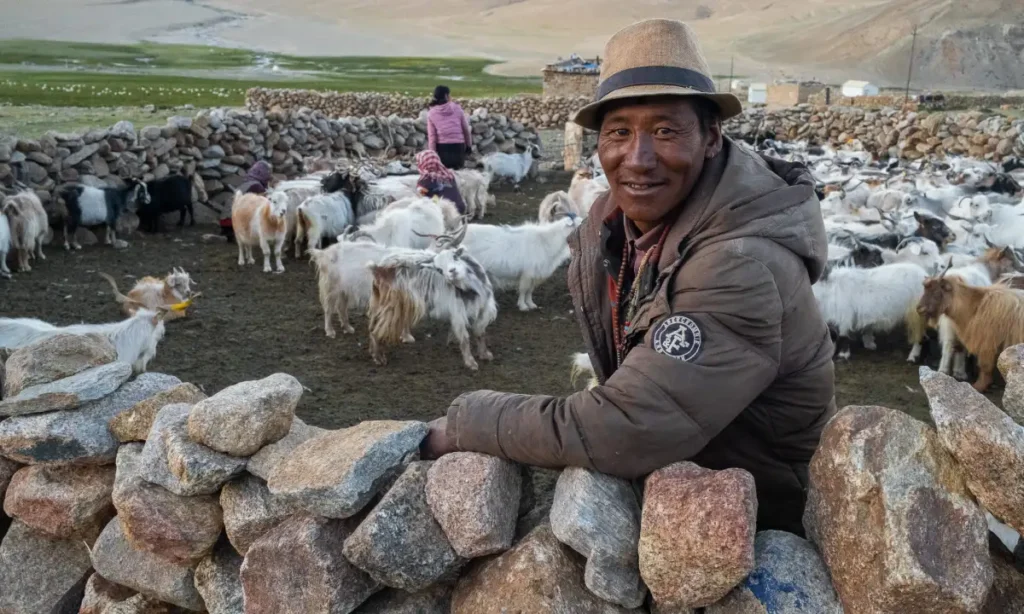
Pashmina is obtained from goats living in high-altitude cold deserts such as Tibet, Mongolia, and Ladakh. The winter conditions in these places are extremely harsh as temperatures can go down as low as -40 degrees centigrades. These goats (and other animals in these areas) develop an undercoat of down beneath coarse hair to survive these winter conditions. This is pashmina.
Some of the finest and softest pashmina in the world comes from the Changthang area of Ladakh in India. We buy pashmina from Ladakh and hand-spin it to make Shawls, Stoles and Scarves. All our pashmina products are hand-woven and
coloured with natural dyes.
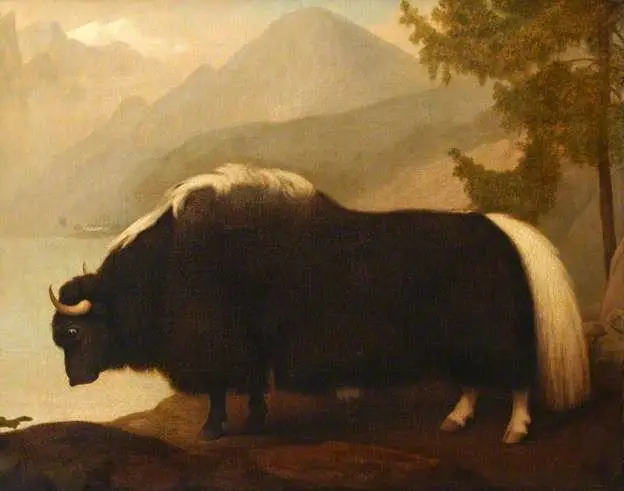
Yaks are found in high-altitude cold deserts and face the harsh cold conditions of these windswept regions. Like pashmina goats, they develop an undercoat of very soft and warm fibre to survive. The fibre (called Yak wool) is almost as soft as pashmina. We use pure Yak wool to make shawls, stoles and scarves. As the color of yak wool is usually dark brown, we do not dye it but hand-weave it in natural colors. These Yak wool shawls and scarves are perfect for winters.
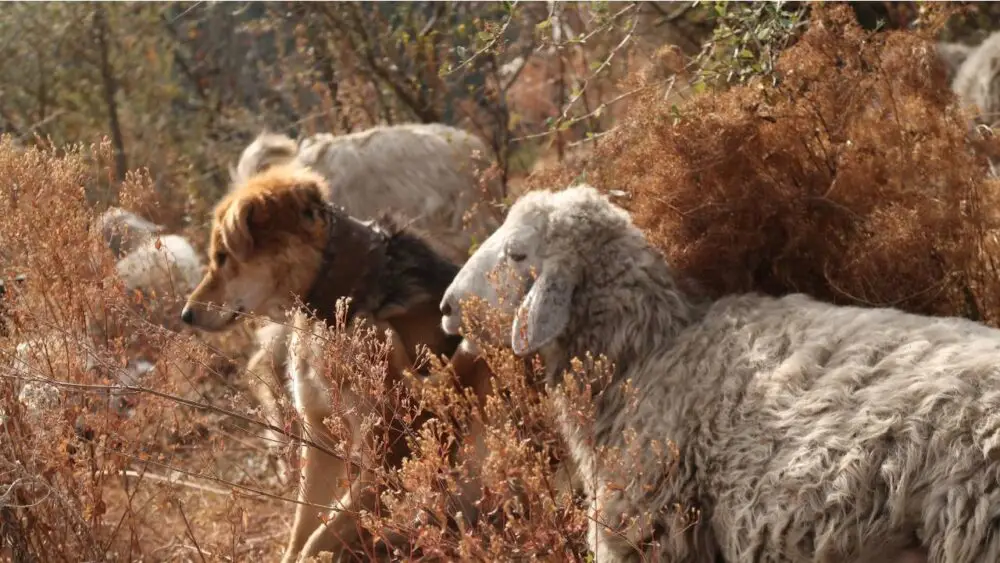
We use a blend of Himalayan and Merino sheep wools to make handwoven products. These include woolen shawls for women and men, woolen scarves and woolen stoles for women. Our woolen products are very soft and warm.
The Himalayan wool comes from Himachal Pradesh and Garhwal Himalayas.
Many of our woolen shawls and woolen scarves are woven with hand-spun wool. This is hand washed and spun using a traditional spinning wheel. The shawls and scarves made with hand-spun wool are especially soft and warm. Jad Bhotias, a migratory pastoralist community in Garhwal, spin the wool for us.
Traditionally, Jad Bhotias kept large herds of sheep and goats and moved between their summer and winter pastures. Most of them were also involved with trans-Himalayan trade with Tibet, crossing into Tibet through Himalayan passes. From India, they took cotton fabric, metal implements, copper utensils and Jaggery, and traded these in the nearest Tibetan markets. After spending two months in Tibet, they would return to India with salt, bauxite and wool. They traded these in various markets such as Rishikesh and Kotdwar.

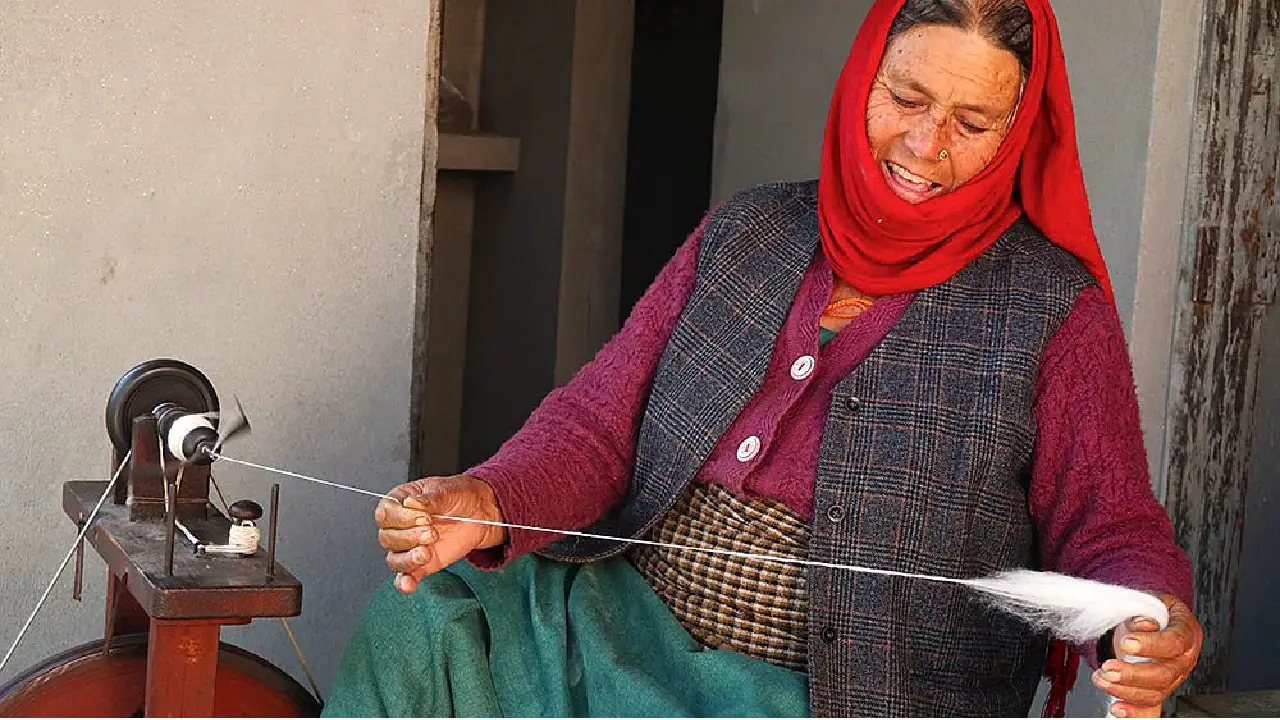
The trans-Himalayan trade with Tibet stopped in the early 1960s after the Indo-Chinese border conflict. Bhotias lost their centuries old pattern of life and had to look for new sources of income. Making hand-woven shawls has emerged as an important source of livelihood for many Bhotia families.
Although their number has declined, many Bhotia families still keep sheep and migrate with them between their summer pastures in the Neelang valley, at a height of about 3800 meters, and winter grazing grounds near Rishikesh, in the plains. They shear the wool in their summer village Bagori, near Gangotri, in September. It is then washed, carded, and hand-spun to make hand-woven shawls (Pankhis), and also knitted into sweaters, socks and gloves.
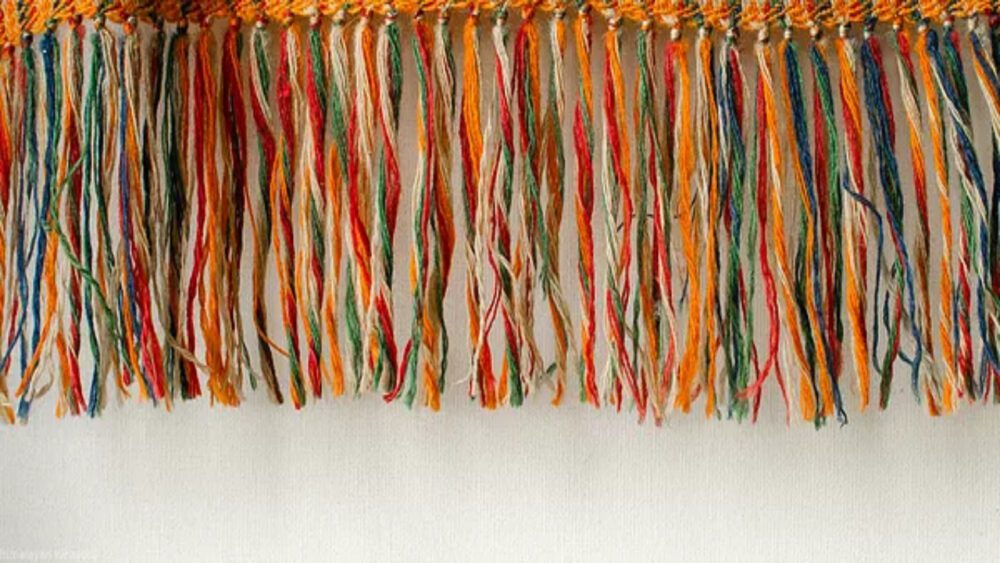
One of our interests in setting up Himalayan Weavers was to promote the use of natural dyes on pashmina and wool. Traditionally, the use of plant-based dyes was common in the Himalayas. Bhotias in particular used a number of plants to dye wool for shawls.
However, over the years, as chemical dyes have become popular, the use of natural dyes has declined. Our effort is to revive the use of natural dyes.
We use a number of plant-based dyes such as madder, indigo and Tesu flowers to obtain a wide range of colors. In fact, Himalayan Weavers’ shawls scarves and stoles are known for their vibrant colours. Read More on natural dyes
Himalayan Weavers was set up by Ghayur Alam and Patricia Alam in 2005 to support handweaving and natural dyes in the Himalayas.
We work with a number of communities in the area to produce hand-woven shawls, stoles and scarves.
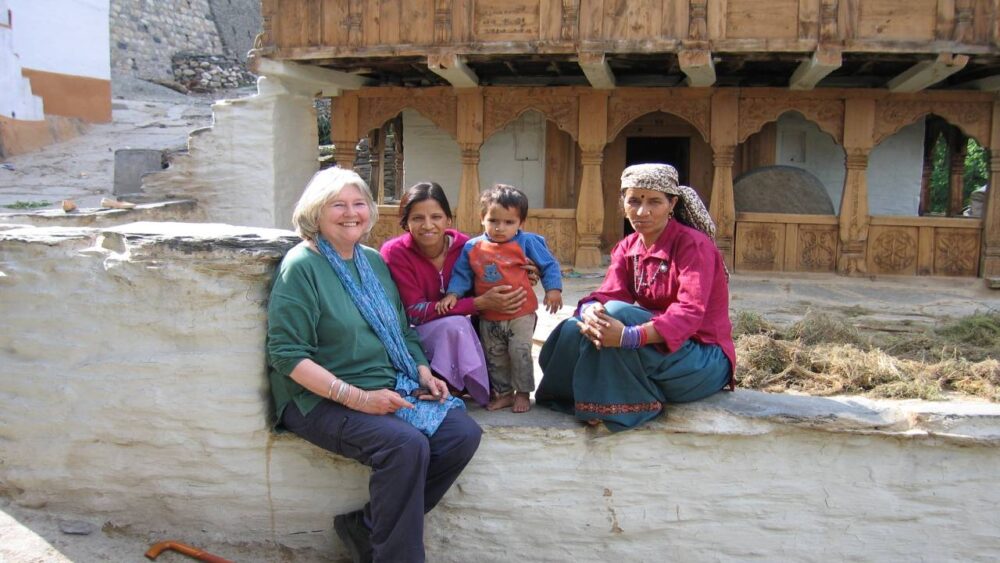
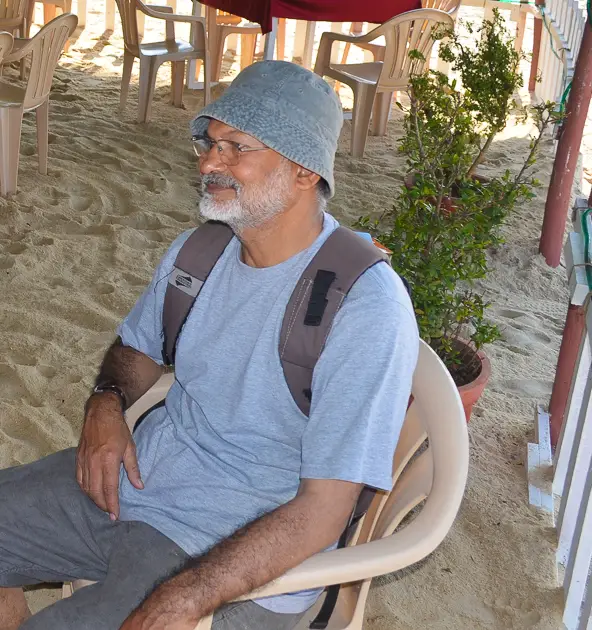
Ghayur Alam studied technology policy at the University of Manchester, UK. His interests include supporting crafts using appropriate and environmentally friendly technologies.
Email:alamcsd@gmail.com
Patricia Alam has been living in India since 1983. She taught Drama and English in the UK and the British School in New Delhi before settling in the Garhwal Himalayas.
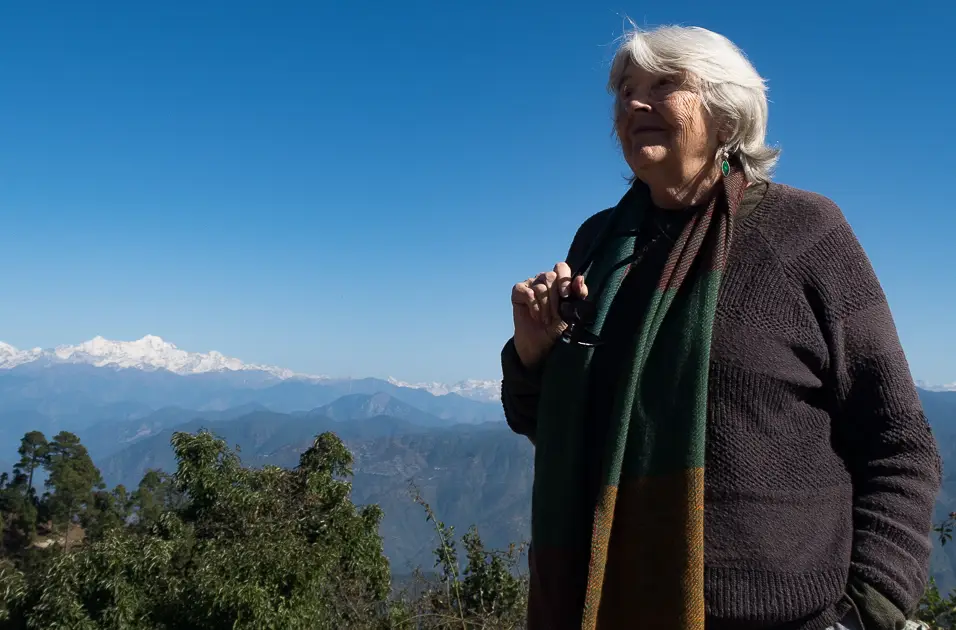
For more information about Himalayan Weavers, or any queries, please contact either of us on our emails. alamcsd@gmail.com & masrana.patricia@gmail.com